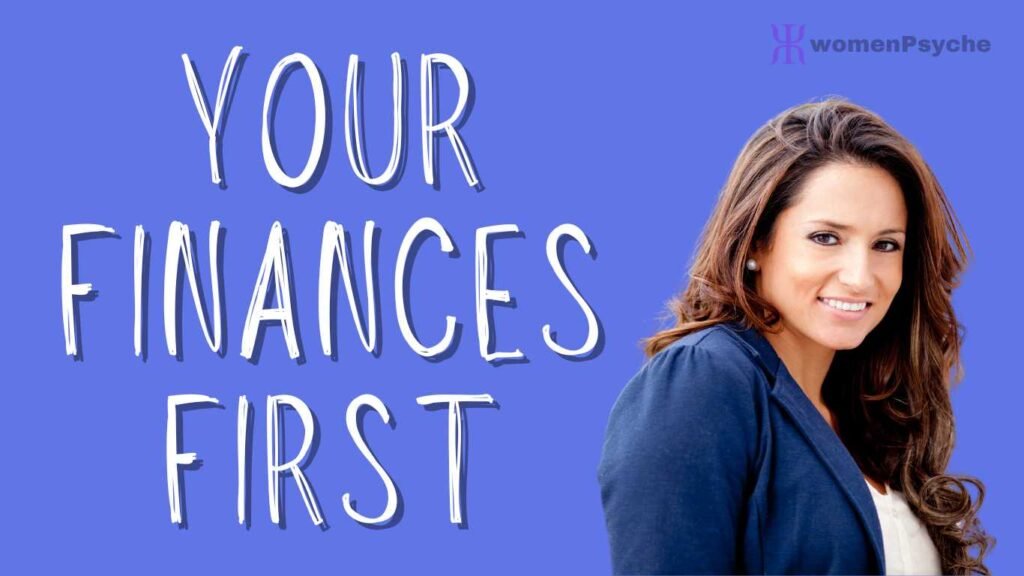Like the aviation analogy of putting the oxygen mask on yourself first, how can you help others if you can’t look after yourself? And how did you get stuck planning for everyone anyway?
Planning for the future – putting savings aside, investing, researching health coverage, organising insurance; I believe these are all crucial issues for anyone to consider for themselves or their family.
But one day, I realised (a little too late) that I had been looking at these things from an entirely wrong angle.
Years ago, during the GFC around 2008, I remember listening to a finance segment on television. The host was berating a caller to the show for trying to help her parents when she didn’t have any savings herself.
Unfortunately, I watched that show and thought I understood the point, but sadly, I failed to see how this applied to my life.
I planned a lot for my future and that of other family members. Yet, I didn’t plan for myself. I put myself last. I put my own hard-earned money and planning efforts towards others.
Of course, if you have children, they will need you (and/or your partner) to consider their needs on their behalf (At least until they are old enough to get involved in their own earning and decision-making).
But why was I planning for the future of other people? It seems like a ‘nice’ thing to do, but in hindsight, it was ultimately a failing on my behalf. I failed myself.
Overlooking your own needs can be disastrous later in life. I only wish I had really thought about worst-case scenarios much more when I looked at my future and finances.
It is sometimes impossible to think that things won’t stay the same in your life.
Sometimes, you can’t imagine the bad things that can happen; sometimes, you don’t heed others suggestions who have seen the fallout, like lawyers or financial planners (and, sometimes, you are so busy surviving you cannot give a toss about the future – the present is hard enough!).
But, if I had my chance again, I would not plan for other people. I would let them do it themselves. I would not take on the responsibility.
Because I was the ‘responsible’ one, the efficient one, the ‘planner,’ I often took on this role, even when others did not ask.
It’s all well and good looking after others as long as you also look after yourself. But, alas, I did not. I failed to plan in any way for the possibility of disaster.
I have (mostly) learned my lesson – I will not put the oxygen mask on others first.
What’s the point? So I can keep being the good one? You don’t get a prize or certificate for that!
Since this can be such an expensive mistake (both financially and personally), I thought I would note some lessons for the future.
If you are in a financial crisis, here are some ways to put yourself first:
- Plan for YOU first
This point includes thinking about your income options in the future and working out what you would need to live on should things end today. If things change, you can ascertain what you need to work towards to meet your future needs.
- Ensure you are ‘fairly paid’ for your contribution.
Now, I know some of these concepts are quantifiable by laws (‘who gets what’), but laws can’t always help you (it’s a rough lesson for some to realise this).
Perhaps you can’t afford to access the law – then what?
Instead of relying on an expensive legal system to ‘sort things out’, it’s preferable to consider your worth upfront (in a relationship, a workplace or any situation) BEFORE things go ‘bad’.
When you have determined the amount of money or resources required to survive from the first point in this article, invest your own salary or income (or agreed joint money) towards your future needs.
Remember, your needs may be more than a partner with higher earning potential due to your time out of the workforce due to pregnancy or child-rearing, illness, education levels or other factors. Each situation is unique.
Many factors may come into play here, such as your health, your environment and how you can survive alone should it one day come to that.
This ‘worth’ should be the basis for your financial plans. Only then can you safely and realistically assist others.
- Create a ‘Disaster’ Plan
The word ‘disaster’ may seem extreme to those sitting comfortably in a situation. But it could save your life one day.
Think of any logistical issue you can and make a plan including things like where to live (a second property you own, a rental/leased property, friends, family, neighbours etc.), which area to move to if you need a change or to obtain employment, what career/job you can rely on should one day you need it etc.
It may seem odd to write something like this when you are happy and can’t see anything ‘bad’ happening – but this is the exact time to start thinking about yourself (in fact, you should ALWAYS think about yourself!).
(This step is difficult to do, for instance, if you face a ‘surprise’ health diagnosis, and you won’t know what limitations and trouble you may be facing, as it depends on the nature of the illness).
It’s not selfish to plan for yourself – ever. If someone has an issue with this – then you have a bigger problem to deal with.
Always remember your safety first – Depending on your circumstances, keeping this plan secret may be necessary, or only tell a trusted friend if you have to.
- Keep Working
Against what others may be encouraging, consider keeping working, even if part-time or casually (in other words, ensure you have financial independence always – if you depend on anyone else, that could change. It does every day for people worldwide, with devasting consequences).
It is not just about income and freedom to make choices. Lack of financial independence could impact your confidence and cause you to become isolated, both potentially dangerous paths to go down.
- Investments
DO NOT put money into a business or investment without being a beneficiary.
Do not assume that someone will recognise your inputs, financial or otherwise. Make it legal.
- Upskill
Do you think all those people who lost their jobs to new technology (think manufacturing industries and robotics, or tech jobs or writers and AI, to name a few) saw it coming?
Did you have a backup plan in case your core skills one day become redundant?
The jobs of today are not necessarily the jobs of tomorrow.
Consider a new career or job if things go ‘bad’, and factor in the cost and time for training/re-training.
Better still, continually work on yourself and be prepared before a serious situation like this happens.
- Joint Finances
Where possible, try not to join finances with another party who is irresponsible or uninterested in paying taxes and planning for their own future.
It is tempting to do ‘all the work’ and take responsibility for everything because you fear it will all blow back on you.
Just think – if they are not responsible now, imagine what could happen in the future, when more is at stake.
You might be older and less able to handle a financial disaster.
- Assets
Always think carefully about whose name goes on any asset you might have a stake in.
It’s easy to overlook this and consider things from one angle, such as tax benefits.
Future tax liabilities like capital gains tax, loan repayments, and overall legal liability for assets should be considered (check with a professional for a full picture of your situation).
Depending on the situation and the laws of where you live, there is often little use in attempting to sort this out ‘fairly’ at the backend if things turn ugly.
If things don’t seem fair, it’s better to know early.
TIP – Get your own, separate accountant or legal advice. Joint advice may not benefit you.
- Financial Responsibility
DO NOT take responsibility for others in the guise of being a good person or the ‘helpful’ one.
If others would not plan for your future, why are you planning for theirs?
Sometimes, we are conditioned to behave this way – we don’t know we are doing it.
If you can, understand that every healthy adult is ultimately responsible for themselves.
Don’t assume others think like you – they don’t!
A Word about Financial or Economic Abuse
If you are facing an abusive situation, then you may not be in control of some of the aspects above.
In this case, you may simply be unable to see all of this, no matter how much you plan (or who points it out for you).
Or if you do see it, you can’t think how to get out of it.
Don’t be too hard on yourself.
Do what you can and seek help if something doesn’t feel ‘right.’
You can recover from what seems impossible. Back to basics; start again if you have to. It’s okay – you probably know exactly what to do next time.
Jennifer Richardson is the author of the ‘Personal Disaster’ book series. Volume 1 outlined a system for ‘unsticking’ yourself from any life crisis. Volume 2 will cover personal Financial Crisis.




